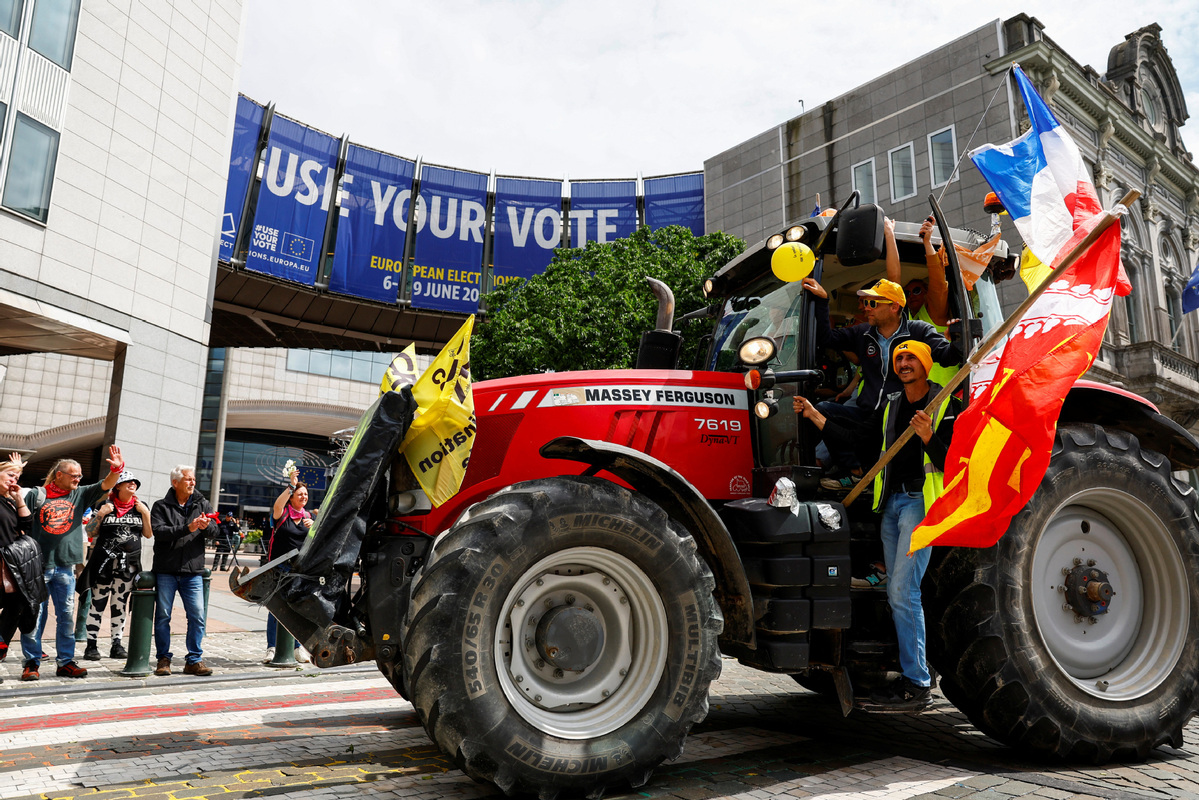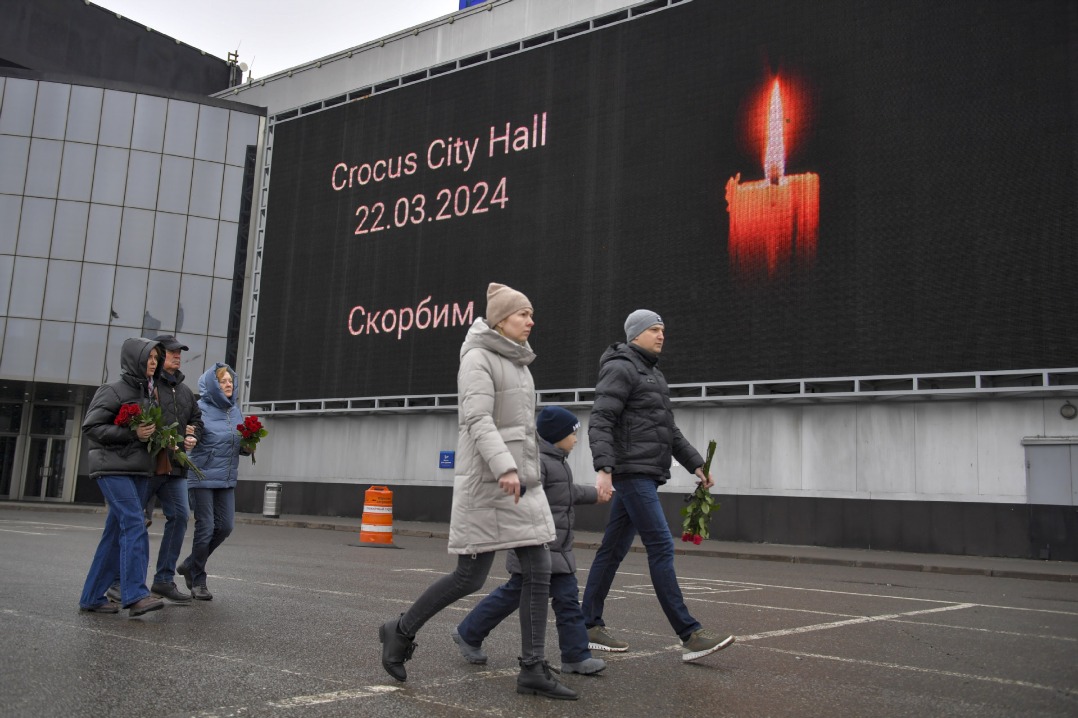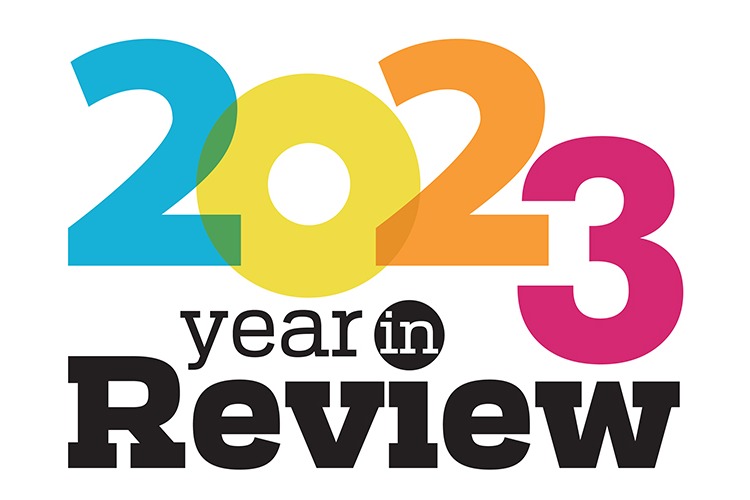Estonia starts casting ballots in EU elections
Baltic state becomes 1st to allow voting as farmers' protests erupt across Europe
By CHEN WEIHUA in Brussels | China Daily Global | Updated: 2024-06-05 09:27

Estonia became the first European Union country to start casting ballots on Monday in the EU elections that will be held in most of its 27 member states from Thursday to Sunday amid farmers' protests across Europe.
The Baltic state has a three-day head start by allowing voting to start on Monday both online and in person. A day before, Malta and Portugal allowed early voting for those who are abroad and have medical situations.
A total of 373 million eligible voters among 450 million EU citizens will elect 720 members of the European Parliament, which will weigh heavily on the direction of the bloc for the next five years.
Meanwhile on Monday, hundreds of Spanish and French farmers, many driving tractors, blocked major crossing points along the two countries' border in a protest that would last until Tuesday.
Another massive protest was staged in Brussels on Tuesday, with farmers from Belgium, France, Germany, the Netherlands and other EU states gathering to send out a message before the elections.
The farmers are demanding greater food security in relation to imports, a tax break for energy used to produce food, and less strict environmental regulations.
A survey conducted by Kapa Research in 10 EU member states last month showed that among the top concerns for voters are rising cost of living, immigration, the Russia-Ukraine conflict, fake news and the problematic situation in the media, economic inequalities, rising nationalistic tendencies and the climate crisis.
A Euronews poll showed that two-thirds of population across Europe said tackling rising prices needs to be a priority for the EU.
At the same time, migration policy remains a contentious issue among member states despite a migration pact passed by the European Parliament in April to deal with irregular migrants who claim asylum.
The number of irregular border crossings at the EU's external border last year reached 380,000, according to preliminary calculations by Frontex, an agency that supports implementation of border management across the EU.
Meanwhile, about 4.2 million Ukrainians now receive temporary protection in the EU as a result of the Russia-Ukraine conflict.
It is widely expected that the elections will result in a significant shift to the right in EU politics.
In France, far-right party National Rally, known for anti-immigration, has gained ground against President Emmanuel Macron's coalition.
France holds 81 of the 720 seats in the European Parliament based on its population, trailing Germany's 96 seats.
In Germany, the far-right Alternative for Germany, or AfD, has suffered a setback lately because of public protests and its own scandals.
But AfD is still trailing only the Christian Democratic Union and Christian Social Union alliance, and ahead of any of the three parties in Chancellor Olaf Scholz's coalition government — the Social Democrats, the Greens and the Free Democrats.
The rights' gain
Carl Bildt, former Swedish prime minister and co-chair of the European Council on Foreign Relations, predicted that the changes in the elections will not be "revolutionary", but the Greens will be losing in some countries and extreme rights will gain in countries such as France, while the European People's Party, the Social Democrats and the Liberals will retain the majority.
"But that remains to be seen," he said on X.
Shada Islam, a commentator on EU affairs in Brussels, expressed deep concern over the EU's political landscape.
"The fact that racism, discrimination and xenophobia are corroding European democracy from within, creating societal divisions and political polarization, is rarely discussed in 'Brussels so white'," she wrote in an op-ed on May 28, referring to the fact that migrants, minorities and people of color are almost absent from the list in the European Parliament elections.
Incumbent European Commission President Ursula von der Leyen is hopeful of a reelection victory, but it is far from guaranteed. The European People's Party, to which she belongs, will likely remain the largest political group in the European Parliament.













